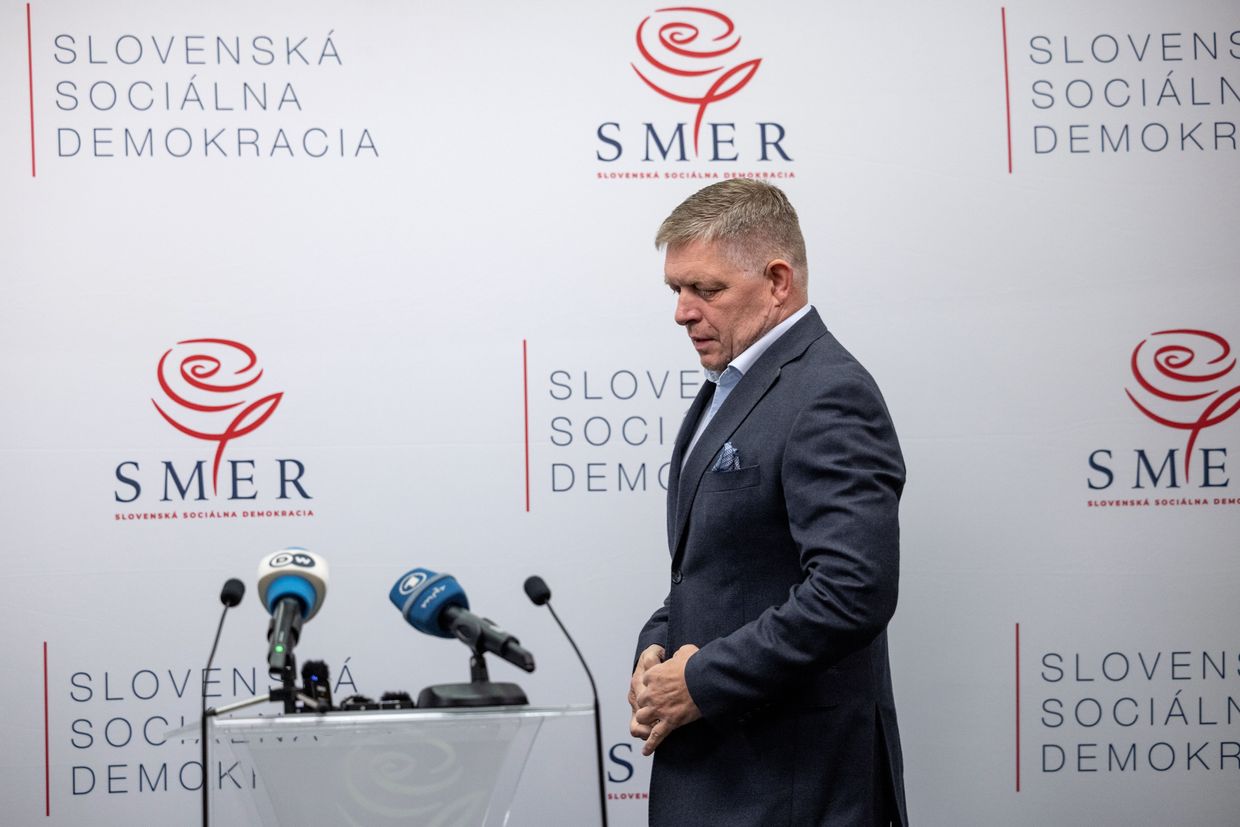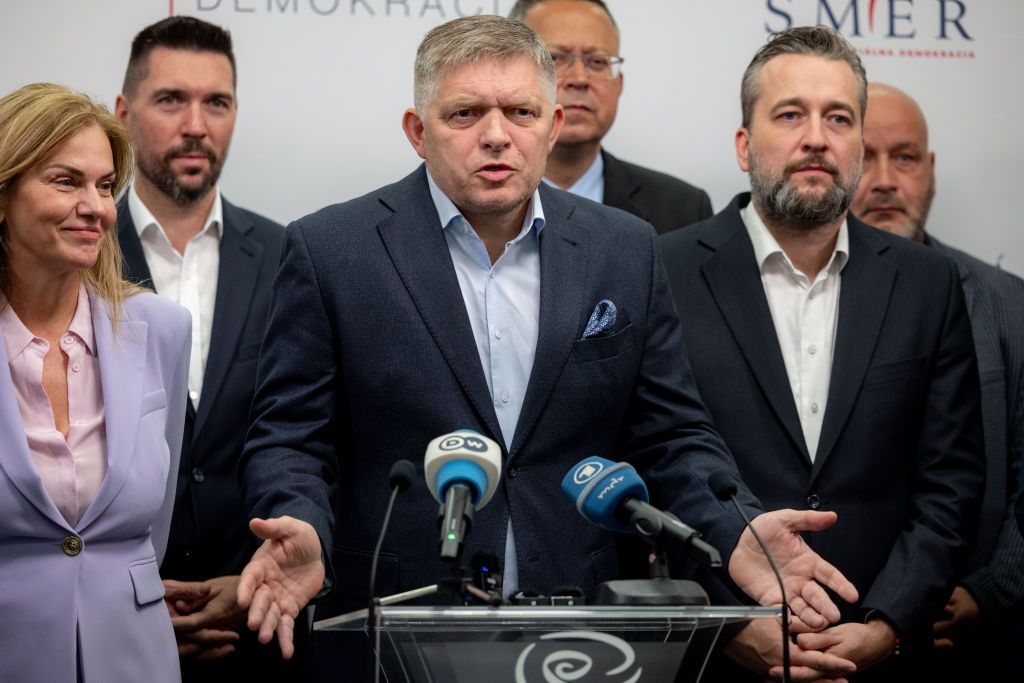Slovakia's pro-Russian SMER party to lead foreign affairs, defense in new government

Leaders of the left-populist SMER, social-democratic HLAS, and the ultranationalist Slovak National Party (SNS) had largely agreed on how to divide ministerial seats in the new government, Aktuality reported on Oct. 16.
Robert Fico's SMER (Direction), which won the highest percentage of votes (22.9%) with a pro-Russian and socially conservative platform, is reportedly going to head defense, transport, finance, foreign affairs, justice, and agriculture departments, and Fico is to become the next prime minister.
SMER's junior partner, HLAS (Voice), which ended up third in the Oct. 6 vote with 14.7%, will occupy the ministries of the interior, economy, labor, digitalization, education, health, and the position of deputy prime minister for the recovery and resilience plan and the use of EU funds. HLAS's leader, Peter Pellegrini, is also meant to chair the Slovak Parliament.
The smallest of the three coalition partners, SNS with 5.6% of the votes, will reportedly be in charge of the environment, culture, and the new Ministry of Sport and Tourism, which is to be established next year.
According to SNS's leader Andrej Danko, the layout of the new government is already agreed upon "at 80%." The parties' leaders did not reveal concrete candidates for the ministerial positions.
As Aktualne pointed out, the candidates will still have to be approved by the internal bodies of the three respective parties and by President Zuzana Caputova.
Senior members of both SMER and SNS expressed anti-Ukrainian and pro-Russian positions, and Fico said Bratislava would cease providing Kyiv with military aid. Shortly after the election, in which SMER beat its liberal, pro-EU challenger Progressive Slovakia (PS), Caputova refused to back further aid for Ukraine, explaining that the result of the elections must be respected.
However, HLAS's Pellegrini said that his party, a more moderate break-away of SMER, would ensure Slovakia's foreign policy continuity. Notably, a part of the recent coalition agreement between the three political factions was a declaration that Bratislava would maintain its pro-EU, pro-NATO orientation.
The three parties agreed to form a coalition government on Oct. 11, which is scheduled to replace the current Ukraine-friendly caretaker government.












